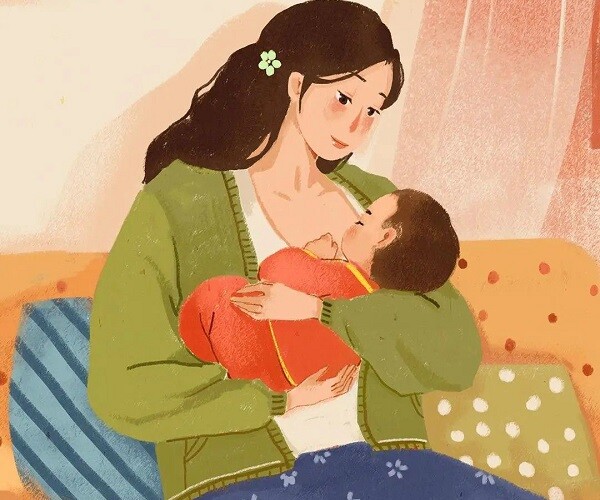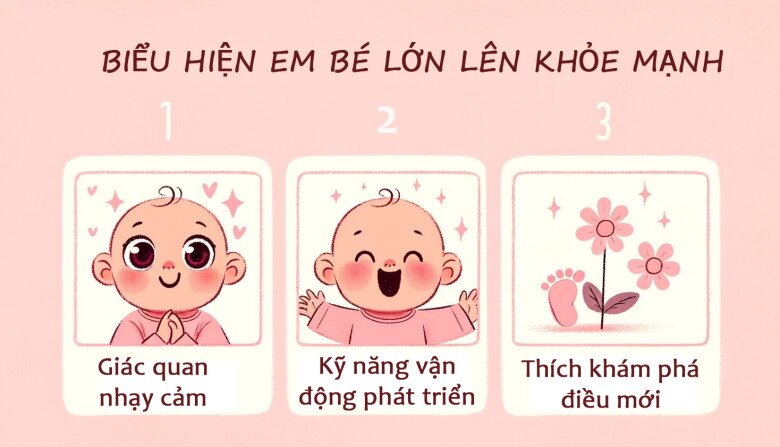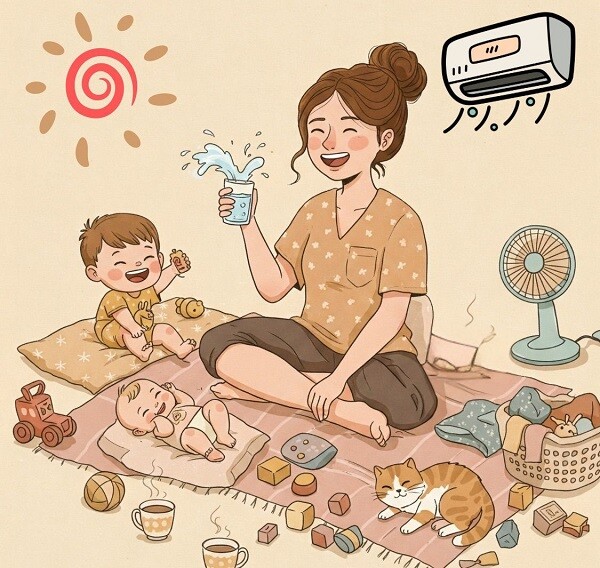Every gesture, glance, or cry holds a unique meaning, conveying a child’s needs, emotions, and interactions with the surrounding world. These behaviors are their way of communicating and reflecting their cognitive and emotional development.
Each child grows at a different pace, leading to variations in cognitive development and social skills.
Some children exhibit strong curiosity and quick learning abilities, while others develop at a slower but steadier pace. This diversity stems from genetic factors and is heavily influenced by their environment, parental care, and social interactions.
Certain children showcase innate talents from an early age, and there are three specific indicators that suggest a baby is thriving both physically and intellectually.


Infant with Sensitive Senses
As newborns enter the world, their senses rapidly develop, forming the foundation for their perception and understanding of the environment.
Within the first three months, their visual nerves mature, and their intelligence flourishes significantly during this period. This is when they begin to explore their surroundings, from blurry shapes to distinct colors, and unfamiliar sounds become part of their new world.
Consequently, for infants with keen senses, sharp observation skills, agile auditory responses, and flexible brains, caregivers and parents should pay close attention. Appropriate stimulation through sounds, lights, and flavors will enhance their overall development.

Hence, sensory alertness deserves careful consideration. Violent behaviors or negative environmental influences can impact their development, causing anxiety or a sense of insecurity.
If a child possesses heightened senses, it necessitates attention as it can lead to feelings of overload or stress, affecting their overall growth and development.
Understanding and respecting their senses fosters healthy development and lays the groundwork for future confidence and adaptability.

Newborns’ senses develop rapidly.

Developing Motor Skills
As children grow, they acquire various skills at different stages. Gross motor skills such as head control, rolling over, and crawling strengthen their muscles, enhance coordination, and boost confidence in mobility.
In tandem with these gross motor skills, children also refine their fine motor skills, including grasping, throwing, and using everyday objects. These milestones reflect physical development and are closely linked to cognitive advancement.
Children with strong learning abilities and improved cognition gain certain advantages for the future. They typically demonstrate quicker knowledge acquisition, smoother communication and social interaction, and may develop problem-solving skills.
Thus, parents and caregivers should not underestimate the importance of early encouragement and facilitation, as it will reap long-term benefits.

Children acquire various skills at different stages of growth.

Eagerness to Explore and Discover
As children embark on their journey of exploration and discovery, their cognitive abilities continue to enhance.
Those who eagerly embrace new experiences, exhibit a higher level of cognitive development, and benefit from a comprehensive intellectual advancement. Newborns possessing these traits often hold an advantage in cognitive development.
However, each child has unique developmental strengths, resulting in distinct capabilities and learning speeds.
Some believe that intelligent infants are more challenging to care for due to their active nature. Yet, this very trait exposes them to a diverse range of experiences, fostering cognitive growth.

Exploration and discovery enhance children’s cognitive abilities.
Conversely, calm infants often provide a greater sense of security to their caregivers. They develop at a steadier pace, exhibiting higher growth rates, making it easier for parents to manage and care for them.
A child’s intelligence is influenced by multiple factors beyond just growth rates, including family atmosphere, genetic inheritance, and other environmental aspects. As children mature, their intelligence continually evolves, but the rate of this development varies between individuals.
Therefore, it is essential for caregivers to recognize these differences and adjust their care and support accordingly, creating an optimal environment for the child’s holistic development. This understanding fosters better growth and establishes a loving and secure bond between parent and child.






































